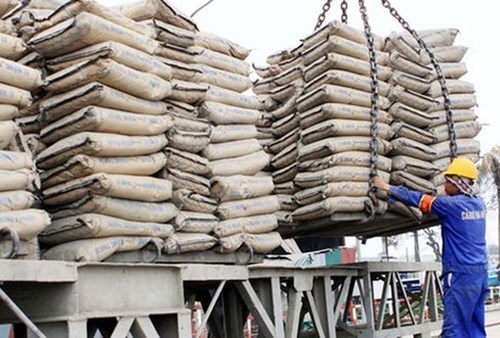According to the Ministry of Construction, the cement industry sold 85.23 million tons of cement products in the first ten months of the year, a massive 51 percent increase against the same period last year.
Exports accounted for 26.05 million tons, surging sharply by 65 percent year-on-year. The high growth helped the industry surpass the export target of 18-19 million tons set for 2018.
Mainland China has become the largest importer of clinker and cement from Vietnam with 6.56 million tons valued at USD 235 million in the first three quarters of the year. The Philippines, Bangladesh and Taiwan followed with 4.75 million tons, 5.64 million tons and 1.23 million tons, respectively.
    |
 |
|
Photo for illustration. Source: cafef.vn |
According to analysts from Saigon Securities Inc, Vietnam’s cement market could benefit from lower production in China in the wake of the country’s new policies. By the end of 2017, China had shifted from being a global exporter of clinker — a semi-product used in the production of cement — to an importer of cement. The country closed a series of cement plants from November 2017 to March 2018 because of environment pollution and a shortage of electricity during the winter.
China faces a shortage of electricity during the winter because the nation needs more electricity for heating. Cement production is one of the industries that consume a large volume of energy.
Demand for cement imports in China had increased significantly, leading to an increase in Vietnam’s cement exports, the analysts said, noting that China is the world’s largest cement producer with an annual capacity of about 2.5 billion tons, accounting for nearly 60 percent of the world’s capacity and roughly 25 times higher the capacity of Vietnam.
In the domestic market, the consumption of cement products was also forecast to keep rising from now to the year-end thanks to high demand from local property developers wanting to complete projects before Tet (Lunar New Year) and whilst the weather is favorable for construction.
The Ministry of Construction’s Building Material Department estimated that the industry would also reach its sales target of 65-66 million tons in the domestic market set for 2018.
The product’s local consumption in the first ten months of the year stood at 59.18 million tons.
On top of Vietnam’s large cement capacity, the list of cement projects that are expected to come into operation after 2018 include some very large factories. These include Song Lam Cement’s production lines 3 and 4 with a total capacity of 3.8 million tons per year, Thai Nguyen Group’s Ha Tien Cement Project in Binh Phuoc with an annual capacity of 4.5 million tons and the Tan Thang Cement Project in Nghe An province with an annual capacity of 1.8 million tons.
Source: VNA